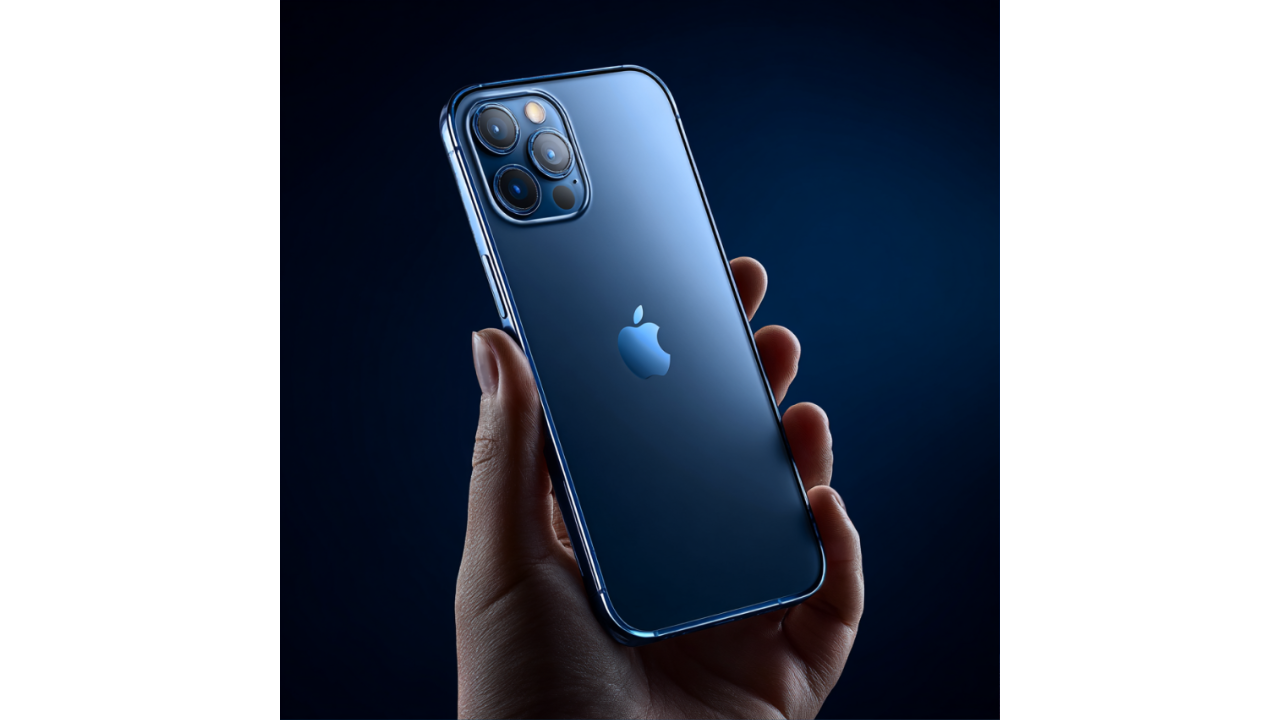Apple Launches and Updates Continue to Downplay AI
While the tech world obsesses over "AI-everything," Apple's latest product launch revealed something fascinating: the company that popularized the...
5 min read
 Writing Team
:
Oct 17, 2025 8:00:01 AM
Writing Team
:
Oct 17, 2025 8:00:01 AM
.png)
John Sculley—the man who ousted Steve Jobs from Apple in 1985 before being ousted himself in 1993—has thoughts about his former employer's competitive position. Specifically, he believes OpenAI represents Apple's "first real threat in many decades."
Speaking at the Zeta Live 2025 conference, Sculley pointed to Apple's reliance on ChatGPT to handle complex Siri queries and suggested the shift toward agentic AI undermines Apple's app-centric ecosystem. He also highlighted Jony Ive's partnership with OpenAI as a potential inflection point in hardware innovation.
The narrative is tidy: Apple has fallen behind in AI, OpenAI is ascendant, and the iPhone maker faces existential competition for the first time since the iPod era.
Except none of that is obviously true. Or obviously false. The situation is considerably more ambiguous than Sculley's framing suggests—and the ambiguity itself tells us something important about where AI competition actually happens.
Let's start with the uncomfortable facts. Apple Intelligence launched years after ChatGPT, Google Gemini, and Microsoft Copilot. When it did arrive, it offloaded complex reasoning tasks to OpenAI's models rather than handling them natively. Siri—once positioned as the future of human-computer interaction—became the industry punchline for voice assistants that don't work.
According to data from Loup Ventures' annual voice assistant IQ test, Siri correctly answered 76% of queries in 2024, trailing Google Assistant (91%) and tied with Alexa. More damning: Siri's improvement rate has stalled while competitors accelerate. The gap is widening, not closing.
Apple doesn't have a frontier LLM. They don't have an AI research lab publishing breakthrough papers. They don't have a cloud infrastructure optimized for training massive models. They outsourced the hard parts to OpenAI and reportedly considered outsourcing more to Google.
Sculley's point about the "agentic era" carries weight here. If the future is autonomous AI agents handling complex multi-step tasks, Apple's app-centric model—where each function requires a separate third-party application—looks antiquated. An agentic system doesn't need seventeen apps to book travel, compare prices, and schedule rideshares. It needs one capable agent with API access.
Apple built an empire on curating and monetizing an app ecosystem. If apps become middleware that agents orchestrate invisibly, the App Store's strategic value diminishes. That's not a minor adjustment. That's an architectural threat to Apple's services revenue, which generated $96.2 billion in 2024.
Moreover, Jony Ive's collaboration with OpenAI signals something. Ive doesn't take frivolous projects. His involvement suggests OpenAI is building hardware that could compete directly with iPhone on form factor, interface design, and user experience—historically Apple's insurmountable advantages.
Now consider the counter-narrative: Apple has never competed on having the best technology. Not in decades.
The iPhone hasn't had the best camera system, the fastest processor, the highest resolution display, or the largest battery for years. Samsung, Google, and various Chinese manufacturers consistently ship superior specs. The iPhone 16 Pro's camera is excellent—but not objectively better than the Galaxy S25 Ultra or the Xiaomi 15 Pro.
Apple wins on integration, ecosystem lock-in, and brand perception. The technology is "good enough" while the experience is polished, the privacy story is compelling, and the status signaling is unmatched. That formula has produced the most profitable product in human history.
Apple's 2024 earnings showed iPhone revenue of $200.6 billion, representing 52% of total revenue and maintaining premium pricing despite Android competitors offering comparable or superior features at lower cost. The market doesn't reward the best technology. It rewards the best product experience.
From this perspective, outsourcing complex AI tasks to OpenAI isn't a weakness—it's strategic pragmatism. Apple gets access to frontier capabilities without bearing the massive R&D and infrastructure costs. Users get better results. Apple maintains its privacy positioning by processing what it can on-device and sending only necessary queries to external models.
The "agentic era" might not materialize the way Sculley imagines. Autonomous agents have been "just around the corner" for three years while actual consumer behavior remains stubbornly app-centric. People still download TikTok, Uber, and DoorDash rather than asking AI agents to handle entertainment, transportation, and food delivery.
And Jony Ive? He's been designing futuristic hardware concepts for years. His LoveFrom studio has worked on everything from AI wearables to climate tech. Ive partnering with OpenAI might produce something interesting, but interesting doesn't mean commercially successful. Remember the Humane AI Pin? The Rabbit R1? Both promised to replace smartphones with AI-native hardware. Both failed spectacularly.
According to market data from Counterpoint Research, Apple maintains 18% global smartphone market share and captures 85% of industry profits despite representing less than one-fifth of unit sales. Hardware margins, ecosystem services, and brand premium matter more than technical specifications.
Here's where Sculley's framing becomes most suspect: defining OpenAI as Apple's "first real competitor in decades" requires ignoring Samsung, Google, Amazon, Microsoft, Meta, and the entire Android ecosystem.
Apple has faced sustained competition continuously. Google built a mobile OS that now runs on 70% of smartphones globally. Samsung became the world's largest smartphone manufacturer. Amazon captured the smart home market with Alexa. Microsoft dominates enterprise productivity. Meta owns social networking.
Apple responded by not competing directly. They didn't try to win on market share, open platforms, or ecosystem ubiquity. They optimized for premium customers willing to pay for perceived quality and integrated experiences. That strategy worked extraordinarily well.
OpenAI competes differently—on capability. They're building the most powerful language models and positioning themselves as infrastructure for AI applications. But infrastructure providers rarely capture consumer mindshare or loyalty. AWS powers half the internet, but consumers don't care. They care about Netflix, Spotify, and the apps they use daily.
The question isn't whether OpenAI's models are more capable than Apple's. They obviously are. The question is whether model capability translates into consumer switching behavior. And the evidence for that remains thin.
Sculley's most interesting claim involves Ive. If anyone can design AI hardware that challenges iPhone, it's probably the person who designed iPhone.
Ive understands Apple's design philosophy intimately because he created it. He knows what made iPhone feel inevitable once you held it—the weight, the materials, the way every interaction felt purposeful. If he's applying that discipline to AI-native hardware for OpenAI, the result could genuinely compete with iPhone on dimensions that matter to consumers.
But Ive also left Apple in 2019, and the company's design language has continued evolving without him. The Vision Pro represents Apple's vision of spatial computing—ambitious, expensive, technically impressive, and commercially underwhelming. Ive wasn't involved.
Moreover, building great hardware requires more than design genius. It requires supply chain mastery, manufacturing scale, retail distribution, software optimization, and ecosystem integration. Apple excels at all of those. OpenAI excels at none.
Ive's involvement increases the probability that OpenAI ships something beautiful. It doesn't guarantee they ship something that competes with a product backed by a $2.8 trillion company with decades of operational excellence.
The most honest answer is: it's genuinely unclear whether Apple's AI positioning represents strategic weakness or calculated patience.
If agentic AI becomes the primary interface for computing—if people stop opening apps and start delegating tasks to autonomous agents—Apple's current architecture is poorly positioned. Their app ecosystem becomes less valuable, their AI capabilities remain dependent on external partners, and their control over user experience erodes.
If the app paradigm persists and AI becomes a feature rather than a platform shift, Apple is fine. They integrate third-party AI where needed, maintain their hardware advantages, and continue extracting premium pricing from consumers who value polish over capability.
The truth probably sits between those extremes. Some tasks will shift to agentic workflows. Most won't. Apple will gradually build more native AI capabilities. OpenAI will gradually improve hardware competence. Competition will intensify incrementally rather than through dramatic disruption.
Sculley's warning makes good headlines precisely because it's plausible but unproven. Apple has faced "existential threats" before—from Microsoft, from Google, from Samsung. They're still here, still profitable, still setting premium pricing.
Whether OpenAI represents something genuinely different depends on questions that won't be answered for years: Can capable AI models overcome ecosystem lock-in? Will consumers prioritize raw capability over integrated experience? Can hardware newcomers compete with Apple's operational excellence?
We'll see. Eventually. But probably not as quickly as Sculley suggests.
If you're trying to determine whether to build for app ecosystems or agentic workflows—or how AI capabilities affect your competitive positioning—talk to Winsome's growth experts. We help organizations make strategic bets when the future is ambiguous and the stakes are high.

While the tech world obsesses over "AI-everything," Apple's latest product launch revealed something fascinating: the company that popularized the...
-1.png)
We finally have a search engine that doesn't suck. Perplexity AI has been a breath of fresh air in a world dominated by Google's increasingly...

Here's a fun party trick: next time someone breathlessly tells you we're "months away from AGI," ask them to explain why ChatGPT cited six entirely...